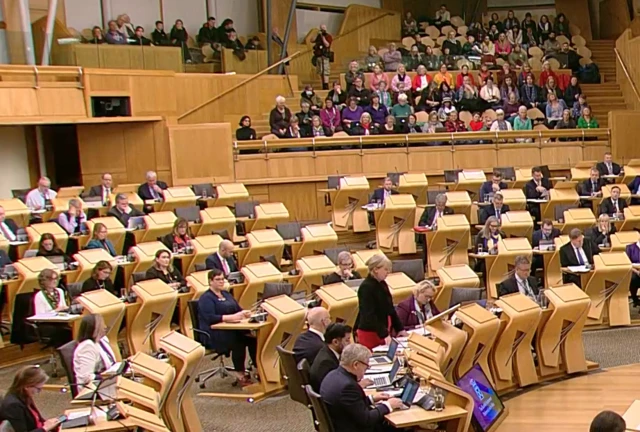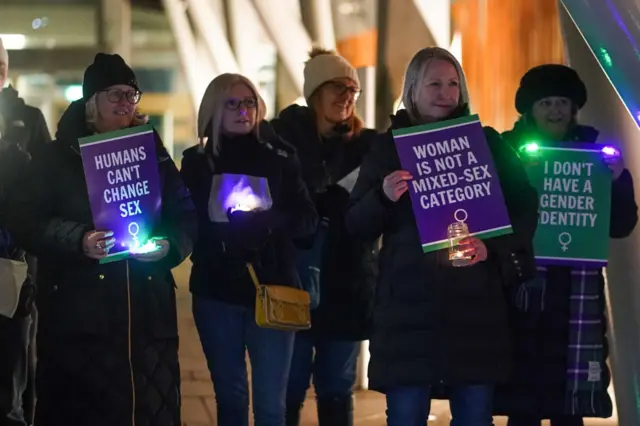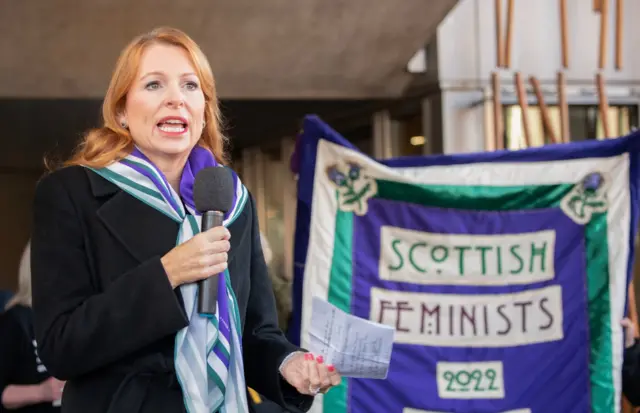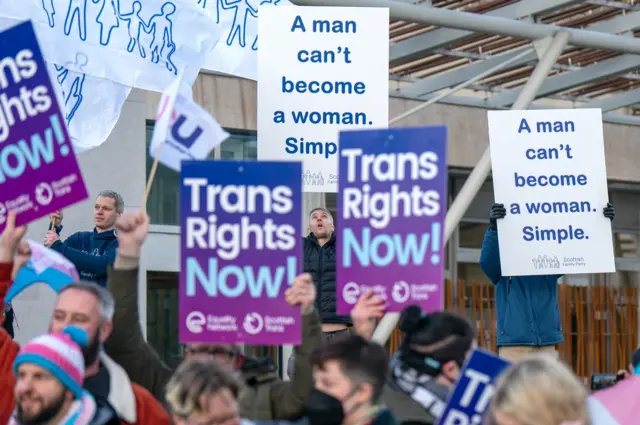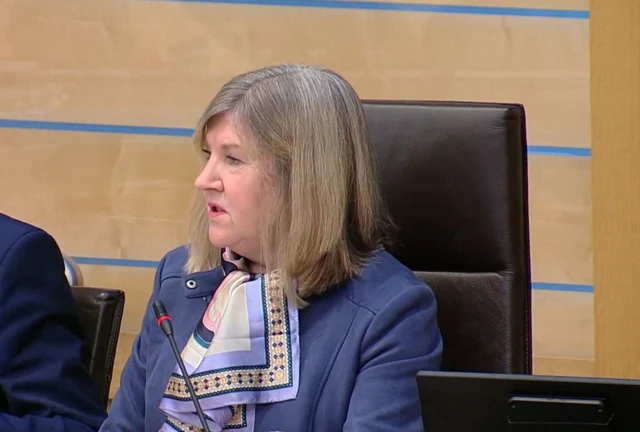Ross 'skirting close to being in contempt of Parliament'published at 19:22 GMT 21 December 2022
 Kirsten Campbell
Kirsten Campbell
BBC Scotland political correspondent
Liam McArthur has been in the chair as deputy presiding officer
Things had been getting a bit tetchy in the chamber, with repeated points of order from the Scottish Conservative leader Douglas Ross, who was seeking to understand why the presiding officer ruled out a last-ditch amendment from one of his colleagues.
The Orkney MSP Liam McArthur, who is in the chair as deputy presiding officer for this stage of the bill, was having none of it, telling Mr Ross that he was "skirting close to being in contempt of Parliament".
This all centres around the Conservatives' concerns that the Court of Session ruling about trans women with a gender recognition certificate being women in the eyes of the law, has not been properly considered by Parliament during the passage of this bill. The government argues that's because it doesn't change anything.




